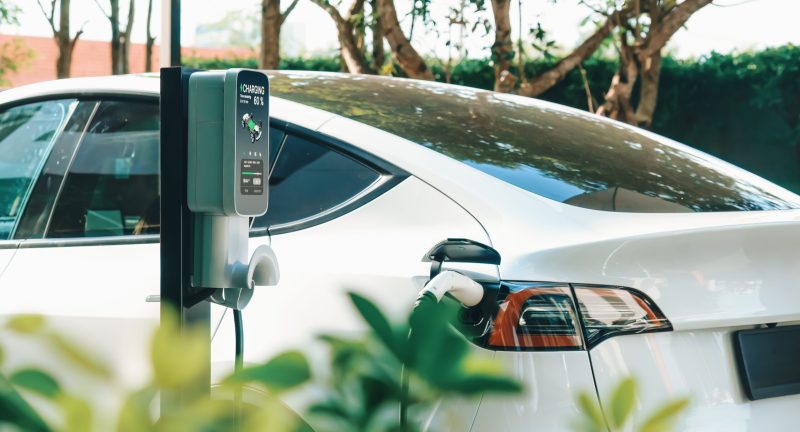Even as concerns over slowing electric vehicle (EV) sales in Europe remain, the EV charging industry, with its promise to create hundreds of thousands of jobs and contribute over €90 billion to the European economy is being viewed as a sunrise sector that could potentially provide the necessary spark to the economy.
A recent independent study by management consultancy P3, commissioned by ChargeUp Europe, estimates that the sector will contribute €92 billion to the European economy over the next decade—approximately equivalent to Luxembourg’s GDP.
The industry is forecasted to grow by 545% in total value-added contributions across the European Union (EU) by 2035.
According to a report by Euronews, Lucie Mattera, Secretary General of ChargeUp Europe said this growth will stem from an increasingly interconnected ecosystem that includes EVs, grid infrastructure, and charging solutions.
Employment opportunities on the rise
The EV charging sector is expected to generate significant employment opportunities.
Current estimates put the number of industry jobs at 61,000, but this figure is projected to soar to 222,000 by 2035.
On average, the sector is anticipated to create 15,000 new jobs annually.
Mattera highlighted the critical need for skilled labor to meet this demand.
Electricians and technicians with specialized knowledge will be crucial for supporting the rapid expansion of the charging infrastructure, as the industry struggles to fill roles due to a lack of qualified candidates.
Investment vs. returns
The P3 study also outlined the expected distribution of value within the sector.
By 2035, nearly half (47.8%) of the industry’s added value will come from electricity sales.
Additionally, 14.8% will be derived from hardware manufacturing, while 9.5% will come from planning and installation activities.
Smart charging operations and general infrastructure management are expected to contribute over 10% combined.
Interestingly, the €92 billion added value projection slightly exceeds the €80 billion investment required by 2030, as estimated by Société Générale.
This return on investment signals the economic promise of the EV charging industry despite its current challenges.
Access to electricity grid a major obstacle to EV charging sector’s growth
The EV charging industry’s growth is contingent on overcoming a significant hurdle: access to the electricity grid.
Europe currently has 630,000 EV charging points, but delays in connecting to grids have stymied progress in several regions.
“Grid access is the single largest obstacle for the e-mobility sector in Europe,” said Mattera.
She noted that permitting processes and regulatory hurdles often delay grid connections, which can take up to two years in Europe—compared to just three months in China.
In certain countries, such as the Netherlands, grid congestion is so severe that some ChargeUp members have withdrawn from the market entirely.
On the other hand, France serves as a relatively positive example, with fewer delays and a more streamlined connection process.
Regulatory roadblocks and investment limitations
The lack of investment in grid infrastructure is partly attributed to stringent regulations imposed by national energy authorities.
These regulations restrict the ability of electricity distribution operators to invest in network expansion.
Mattera described the current regulatory framework as outdated, arguing that it fails to align with Europe’s climate objectives.
“The framework has not been modernized to match the pace of electrification,” she said, emphasizing the need for national parliaments to implement reforms that enable greater investment in grid capacity.
EV charging’s minimal impact on electricity demand
While some critics argue that EVs could overwhelm Europe’s electricity grids, Mattera dismissed these claims.
Currently, e-mobility accounts for just 0.4% of total electricity demand in Europe.
This figure is expected to rise to 4% by 2035, a manageable increase in the context of Europe’s overall energy consumption.
The industry remains confident that resolving grid access issues will eliminate any significant limitations on its ability to meet demand.
Is Europe keeping pace with EV charger rollouts?
Contrary to concerns about a shortage of charging points, ChargeUp Europe reports that 26 of the EU’s 27 member states are on track to meet their EV infrastructure targets.
Malta remains the sole outlier.
However, the rollout of new EV chargers could be delayed by regulatory uncertainty.
With each charger costing between €30,000 and €50,000 and investments spanning up to 40 years, industry representatives caution that unclear policies could deter further development.
A call for comprehensive policy support
To ensure the long-term success of the EV charging industry, European policymakers must take decisive action.
Susana Pérez, a member of the European Parliament’s Committee on the Environment, Public Health, and Food Safety, urged the EU to implement measures that support the e-mobility sector.
This includes encouraging the production of affordable EV models, fostering demand, preparing the grid for increased electrification, and ensuring competitive electricity prices.
Despite challenges, the future of Europe’s EV charging industry looks promising.
The sector’s potential to add €92 billion to the economy and create 222,000 jobs underscores its role as a key driver of the clean energy transition.
However, unlocking this potential will require a collaborative effort between industry stakeholders, regulators, and policymakers to modernize infrastructure and regulatory frameworks.
With the right support, the EV charging industry could help pave the way for a sustainable and electrified Europe.
The post Can EV charging electrify Europe’s economic future? appeared first on Invezz


